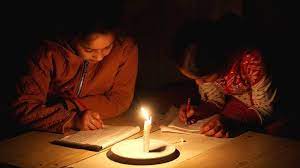
A Valley in Darkness: Kashmir’s Crippling Power Crisis
Flickering Hope: Can Kashmir Light Up Its Future?
The persistent electricity crisis in Kashmir has cast a long shadow over the region’s development prospects, leaving residents and businesses grappling with the daily uncertainty of power outages. As the Kashmir Power Distribution Corporation Limited (KPDCL) struggles to meet the escalating demand for electricity, questions loom large over the authorities responsible for addressing this pressing issue. When will this mess be resolved, and what steps are being taken to ensure a swift and sustainable solution?
Amidst the clamor for answers, it becomes increasingly evident that the foundation of any modern society, particularly one aspiring to become a smart city, rests upon a robust and reliable electricity infrastructure. Yet, as Kashmir finds itself ensnared in a web of power shortages and grid failures, it becomes painfully clear that this essential groundwork has been neglected in favor of lofty aspirations.
The crux of the matter lies in a fundamental failure to anticipate and address the region’s burgeoning energy needs. With a rapidly growing population and expanding urban centers, the demand for electricity has outpaced the capacity of the existing infrastructure, leaving residents at the mercy of erratic power supply and prolonged outages. In this context, the decision to forge ahead with ambitious projects such as smart cities seems premature, if not downright reckless, without first shoring up the foundational pillars of a reliable electricity grid.
As Kashmiris endure the consequences of this shortsightedness, the need for immediate action becomes abundantly clear. It is incumbent upon the authorities to not only acknowledge the gravity of the situation but also to take concrete steps towards rectifying it. This entails a multifaceted approach, encompassing both short-term interventions and long-term investments in infrastructure and capacity-building.
In the short term, the authorities must prioritize measures to alleviate the immediate suffering of residents and businesses affected by power shortages. This may include procuring additional electricity from external sources, optimizing the distribution network to minimize losses, and implementing measures to mitigate the impact of outages on essential services such as healthcare and education.
Simultaneously, efforts must be redoubled to address the underlying structural deficiencies that have contributed to the electricity crisis. This requires a strategic focus on upgrading and modernizing the existing infrastructure, investing in renewable energy sources to diversify the energy mix, and implementing policies to promote energy efficiency and conservation.
Crucially, accountability must be at the forefront of these efforts. The authorities must be held to account for their role in exacerbating the electricity crisis through negligence, mismanagement, or lack of foresight. This necessitates transparency, accountability, and a willingness to engage with stakeholders, including residents, businesses, and civil society organizations, to chart a way forward that is inclusive, equitable, and sustainable.
Bottom-line, the electricity crisis in Kashmir is not merely a technical or logistical challenge; it is a reflection of systemic failures in governance, planning, and decision-making. To overcome this crisis and pave the way for a brighter future, concerted action is needed on multiple fronts, from immediate interventions to long-term investments in infrastructure and capacity-building. Only then can Kashmir truly fulfill its aspirations of progress, prosperity, and development.
More Stories
Boycott Call Holds No Relevance Post-2019, Raises Concerns Over Poll Representation: Mirwaiz
Meanwhile, with the elections in Srinagar slated for May 13, authorities on May 3 placed the Mirwaiz under house arrest...
BJP’s Absence in Kashmir Due to Fear of Negative Outcome : Omar Abdullah
National Conference leader Omar Abdullah on Friday asked the BJP why it had not fielded candidates from the Kashmir Valley...
The Illusion of Smart: Unmasking the Challenges of Building a Truly Intelligent City
Beyond Buzzwords: Building a Smart City That Works for All By: Javid Amin The vibrant imagery of a "Smart City"...
National Conference and PDP Criticize Election Commission for Delaying Anantnag-Rajouri Poll
National Conference vice-president Omar Abdullah on Wednesday said the Election Commission of India’s move to defer poll for Anantnag-Rajouri parliamentary...
Kashmir’s Power Crisis: Article 370 Dominates Election Discourse
There is palpable discontent over the government’s failure to deliver on promised development following the scrapping of the State’s special...
Unpacking How BJP’s Withdrawal From Kashmir Valley Election Shaped NC and PDP’s Fortunes
The BJP has fielded its candidates in Udhampur and Jammu and is backing its allies, People's Conference and Apni Party,...

